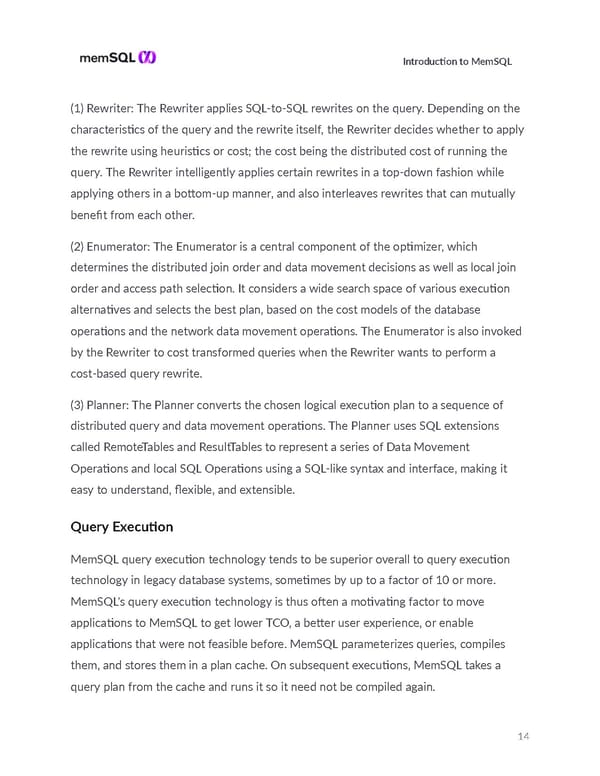I ntroducon to MemSQL (1) Rewriter: The Rewriter applies SQL-to-SQL rewrites on the query. Depending on the characteriscs of the query and the rewrite itself, the Rewriter decides whether to apply the rewrite using heuriscs or cost; the cost being the distributed cost of running the query. The Rewriter intelligently applies certain rewrites in a top-down fashion while applying others in a boom-up manner, and also interleaves rewrites that can mutually benefit from each other. (2) Enumerator: The Enumerator is a central component of the opmizer, which determines the distributed join order and data movement decisions as well as local join order and access path selecon. It considers a wide search space of various execuon alternaves and selects the best plan, based on the cost models of the database operaons and the network data movement operaons. The Enumerator is also invoked by the Rewriter to cost transformed queries when the Rewriter wants to perform a cost-based query rewrite. (3) Planner: The Planner converts the chosen logical execuon plan to a sequence of distributed query and data movement operaons. The Planner uses SQL extensions called RemoteTables and ResultTables to represent a series of Data Movement Operaons and local SQL Operaons using a SQL-like syntax and interface, making it easy to understand, flexible, and extensible. Query Execuon MemSQL query execuon technology tends to be superior overall to query execuon technology in legacy database systems, somemes by up to a factor of 10 or more. MemSQL's query execuon technology is thus oen a movang factor to move applicaons to MemSQL to get lower TCO, a beer user experience, or enable applicaons that were not feasible before. MemSQL parameterizes queries, compiles them, and stores them in a plan cache. On subsequent execuons, MemSQL takes a query plan from the cache and runs it so it need not be compiled again. 14
 Technical Introduction to MemSQL Page 13 Page 15
Technical Introduction to MemSQL Page 13 Page 15